Main Street, not mafia: How gaming in Pennsylvania entered a new era, and what's next
- Oops!Something went wrong.Please try again later.
The days when underworld interests warred for gambling turf in Pennsylvania are over. Today those battles are fought openly with campaign cash from casinos, game machine manufacturers and their proxies in the halls of the Capitol in Harrisburg.
Carving up this burgeoning multi-billion-dollar industry has become increasingly urgent amid recent court rulings and Gov. Josh Shapiro's request for lawmakers to regulate and tax Pennsylvania Skill machines, a growing and unfettered component of the gaming world.
"I've worked on complex issues," state Sen. Frank Farry (R-Bucks) told the USA TODAY Network. "This issue has more stakeholders than I ever knew existed."
From 'seedy underworld' to mainstream
In Pennsylvania's not-so-distant past, these kinds of machines would have fallen squarely on the wrong side of the law, according to Rob Holub, a sport management professor at the University of New Haven who has studied corruption and gambling.
"It's been a glacial move from the seedy underworld to mainstream, but it has picked up a downhill head of steam in the last few years because the major sports leagues have normalized it," Holub said of pervasive online betting and related pastimes. "If you see it everywhere, you're more likely to try it. And if you try it, you're more likely to continue as well."
To Holub, the shift started with then-President George W. Bush's signing the Unlawful Internet Gambling Enforcement Act of 2006.
This law, Holub said, cracked down on internet poker. But it also provided a clear federal definition for lawful "skill-based" games ― and companies such as Pace-O-Matic have since been making loads of money within that space.
"They are very good at playing the gray of the definition of what is a skill-based game," Holub said.
Opinion: To protect Erie's casino revenue and jobs, lawmakers should regulate and tax skill games
In 1995, Pennsylvania's then-Attorney General Ernie Preate was sentenced to prison for mail fraud, accused of accepting $20,000 from video poker operators in exchange for lenient enforcement of their illicit operations. Today, people are openly playing these same kinds of machines at gas stations while the manufacturers of the machines openly donate money to elected officials.
"You become desensitized to what a previously held vice might be," Holub said.
"You have a younger generation under 45 open to anything. Not that it's good or bad, but as long as you're not bothering me, we don't care. People legitimately changed their opinions now and changed their beliefs a little bit."
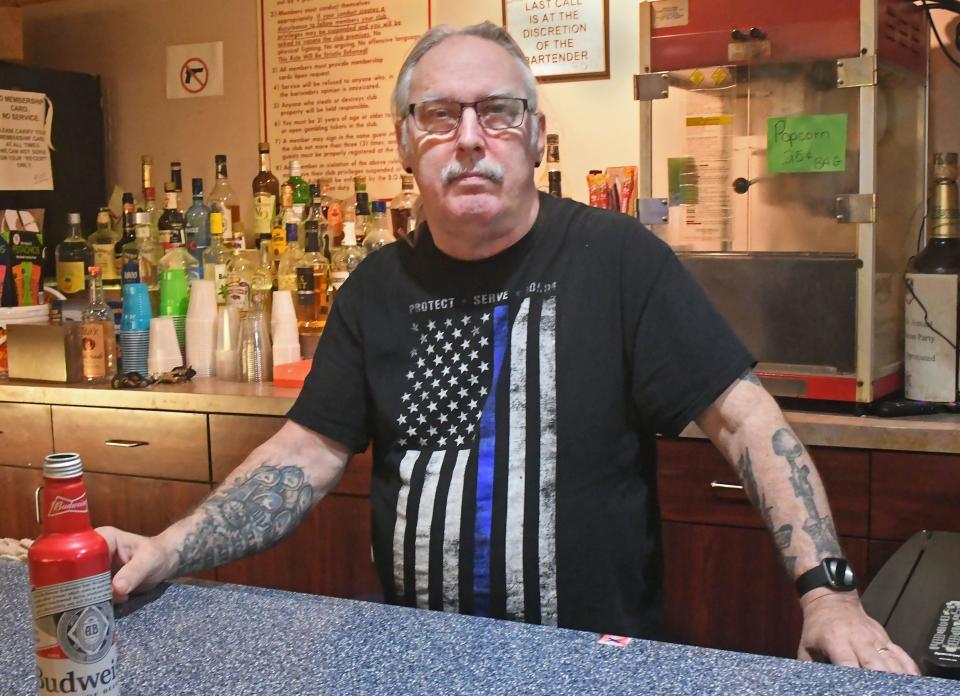
'Problem-solving money'
For many bar owners and civic club leaders, Pennsylvania Skill machines from Pace-O-Matic have been a game-changer. The skill games industry estimates that up to 90% of skill game revenue stays in the community hosting the machines.
Rick Ross, manager at American Legion Post 771 on the east side of the city of Erie, said profits from skill machines help the club pay for overhead such as utilities.
"We usually see a profit of $700, $800 each month," Ross said. "Last week we were down about $3,000, which is unusual. It depends on the week."
Five people sat at the bar and joked with Ross as Hank Copeland, 72, sat nearby at one of the machines. Copeland said he was about $15 ahead at the time.
Pace-O-Matic, founded in 2010, has for years been distributing skill games to venues through the same coin-operated machine operators that manage jukeboxes and pool tables.
The business model is fairly straightforward. Bars and clubs are given the machines at no cost and share in the proceeds.
Mike Barley, a spokesperson for Pace-O-Matic, said he believes his company's Pennsylvania Skill games are replacing similarly untaxed slot-type machines that have been used quietly in bars and clubs for decades.
"We're going to clean up a lot of the illegal gambling problem. We kind of pulled that out from the shadows," he said.
Bar and club owners, according to Barley, have purchased thousands of old slot machines at auction over the years, using them as an illegal revenue supplements.
Pennsylvania Skill games will be different, Barley said. He noted his company is lobbying for regulation and taxation accounting for social responsibility and giving the state another revenue stream.
"That's problem-solving money," Barley said of the windfall already coming to bars and clubs.
To Barley and other advocates, society's majority has already settled the morality debate. They cite a recent Franklin & Marshall College Poll suggesting that 60% of state voters are in favor skill games compared to 32% seeking a ban, and note the popularity of the Pennsylvania Lottery, casinos and igaming, where people can wager on sports outcomes from their phone in the comfort of their own home.
"(People) are seeing gaming everywhere they go," Barley said.
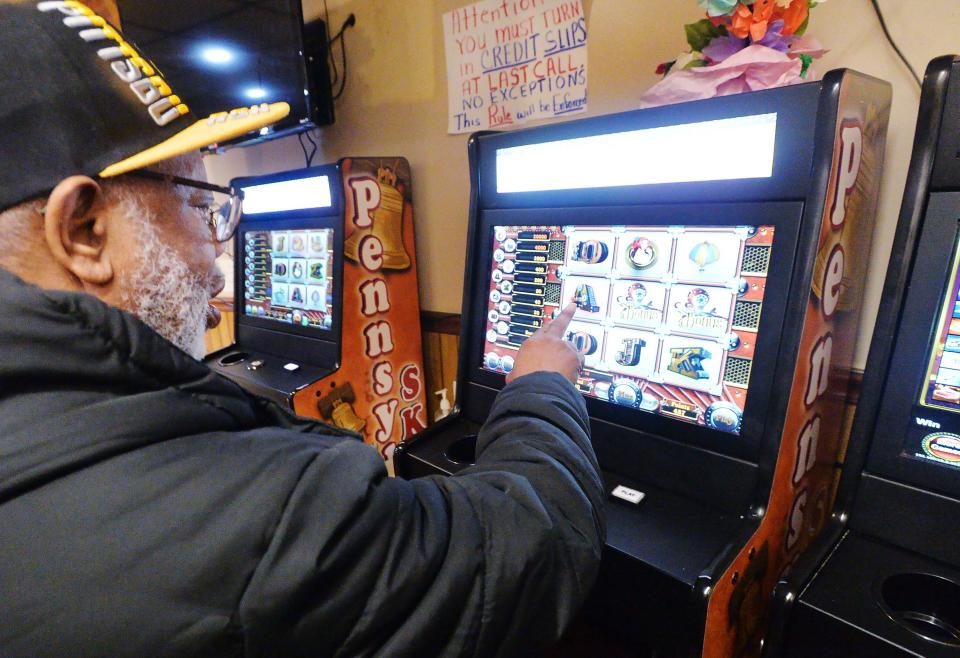
Senate Bill 706
In addition to Pennsylvania, Pace-O-Matic operates in states such as Kansas, New York, Texas, Virginia and Wyoming. Barley said Wyoming has established the kind of regulation and tax structure he'd like to see in Pennsylvania.
Much of that framework is mimicked in Senate Bill 706, sponsored by state Sen. Gene Yaw (R-Lycoming).
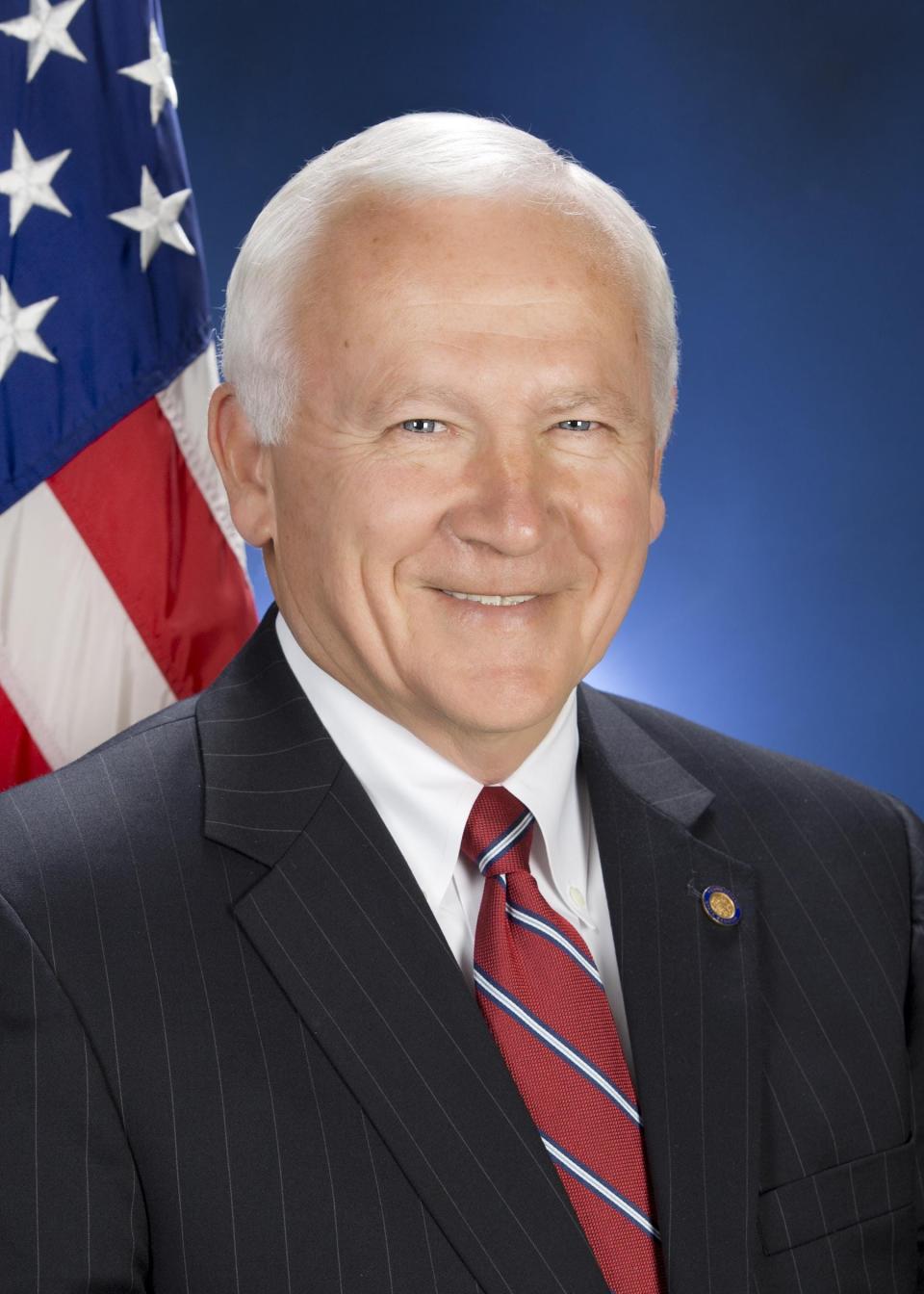
Yaw's bill would allow up to five skill games at liquor- and Lottery-licensed facilities. Fraternal clubs would be permitted to host as many as 10 games.
The Department of Revenue would license and regulate distributors, operators and locations, while the Pennsylvania State Police Bureau of Liquor Control & Enforcement would be tasked with oversight of the industry and cracking down on illegal games.
"This has been around and talked about to some extent and not really brought to the forefront," Yaw said of addressing skill games. "I think the comments by the governor will bring it to the forefront."
As far as Yaw's concerned, the question of whether Pennsylvania Skill games are illegal under existing law has already been settled through multiple court decisions, including a unanimous Commonwealth Court ruling.
His proposal would subject skill game operators to a 16% tax on top of the income, property and sales taxes. He said this rate is comparable to the tax on table games, and that he's willing to listen to other ideas about the best way to regulate the industry.
"I've been around long enough to know that a perfect piece of legislation has not been written yet," Yaw added.
"(Casinos are) not satisfied with record profits? They want more? That just doesn't wash with me at all."
In addition to the 16% tax, Yaw's legislation would supplement the state's income with an initial $1 million application for skill game distributors, a $25,000 fee for operators and a $250 fee for hosting establishments.
Under this framework, annual renewals would be required as well. These would cost distributors $100,000 a year, operators $5,000 a year and venues $250 a year.
Senate Bill 706's companion piece in the House of Representatives is sponsored by state Rep. Danilo Burgos (D-Philadelphia), who told the USA TODAY Network that it's important for the commonwealth to tap this potential revenue stream as soon as possible in order to prevent other tax increases.
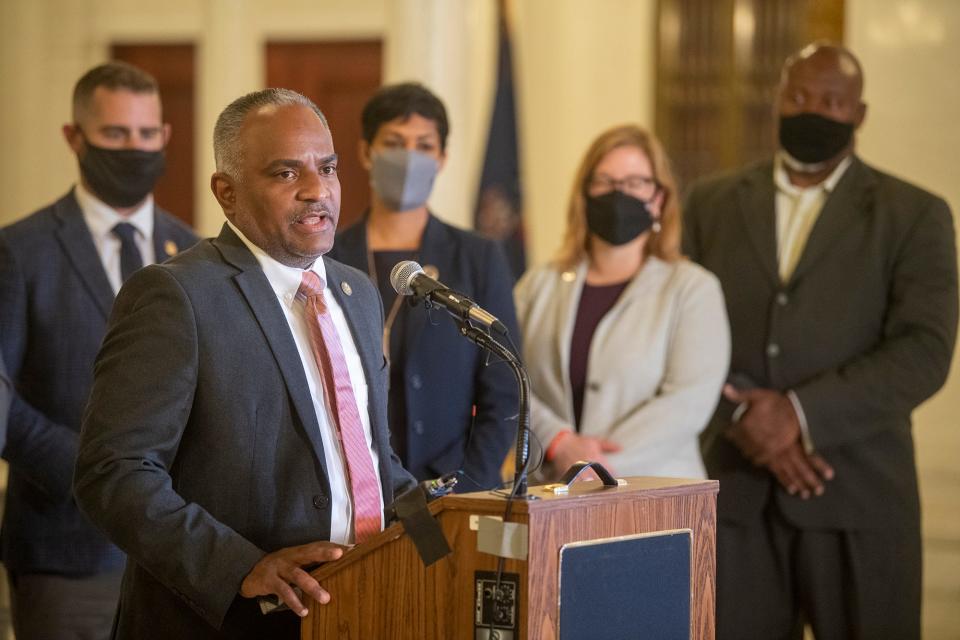
"It's not fair that they're not paying taxes, technically," Burgos said, adding that he believes there are separate markets for skill games, casinos and other gaming.
"I think that they've been coexisiting for the past three years and I think it's time that we put them on the books so they can pay their fair share also. I hope it can be done this session. To continue to delay it is to continue to allow them to not pay taxes, and that's not acceptable."
Burgos's House Bill 2075 was referred to the Gaming Oversight Committee on Feb. 28.
More: Presque Isle Downs & Casino sees $15 million revenue drop in 2023. What caused the decline?
Operators for Skill PAC
To promote their favored legislation, Pennsylvania Skill's political action committee, Operators for Skill PAC, has donated millions to lawmakers over past few years.
Prior to the court rulings that seem to affirm the legality of these games, some of the most influential figures in the Capitol were rejecting campaign funds from their lobby.
In 2019, Senate Democratic Majority Leader Jay Costa (D-Allegheny) received and returned $10,000 from the industry. Then-Senate Majority Leader Kim Ward, now president pro tempore of the Senate, gave back the $16,500 she received two years later.
Jake Corman, who was Senate president pro tempore at the time, returned $27,000.
"I'd like to see them banned," Corman said in a 2021 interview with the USA TODAY Network. "At minimum, they should be regulated."
The lobbying has persisted.
A cursory glance at 300-plus pages of records on file with the Pennsylvania Department of State reveals more than 9,000 individual campaign contributions in 2023 alone. Prominent recipients include Speaker of the House Joanna McClinton (D-Philadelphia), Senate Majority Leader Joe Pittman (R-Indiana) and Justice Dan McCaffery, the newest member of the Supreme Court of Pennsylvania.
The Philadelphia Inquirer reported that Pace-O-Matic had given $1.7 million to Pennsylvania politicians in 2022, placing them just behind the American Petroleum Institute as the fourth-largest spender in the commonwealth.
'If there isn't parity, taxpayers lose'
Critics of these games argue that it will be crucial for lawmakers to pay attention to regulatory detail. Peter Shelly ― an opposing party as consultant for Parx Casino in Bensalem and Shippensburg — said Pennsylvania Skill operators should pay a tax rate at least comparable to the 54% paid on slot machines.
"If the tax rates aren't comparable, if there isn't parity, taxpayers lose," Shelly said.
He noted that casinos generated a record $2.3 billion in tax revenue for Pennsylvania in 2023. Lawmakers should consider how to regulate skill games in a way that doesn't hurt revenue sources such as casinos and the state Lottery, he said, adding that Pennsylvania Skill should be monitored by the Pennsylvania Gaming Control Board just as similar operations are.
"With the Gaming Control Board you have support for compulsive gambling, people can exclude themselves," Shelly said.
"You have guardrails, security measures in place to report underage gaming. (Skill machines) are magnets for crime in many, many communities."
The future of casinos, according to Shelly, and the 15,000-plus they employ, will hinge on the Legislature getting it right with skill game regulations.
"We welcome the debate," he said. "We think the governor's got a good start, a good opening proposal."
Yaw's bill rests with the Senate's Community, Economic and Recreational Development Committee, where it's remained since it was referred there May 26.
State Sen. Chris Gebhard (R-Lebanon) chairs the committee. He said skill games remain a complex topic: their legality, how they affect the commonwealth's other gaming revenue streams and what would constitute a fair tax structure.
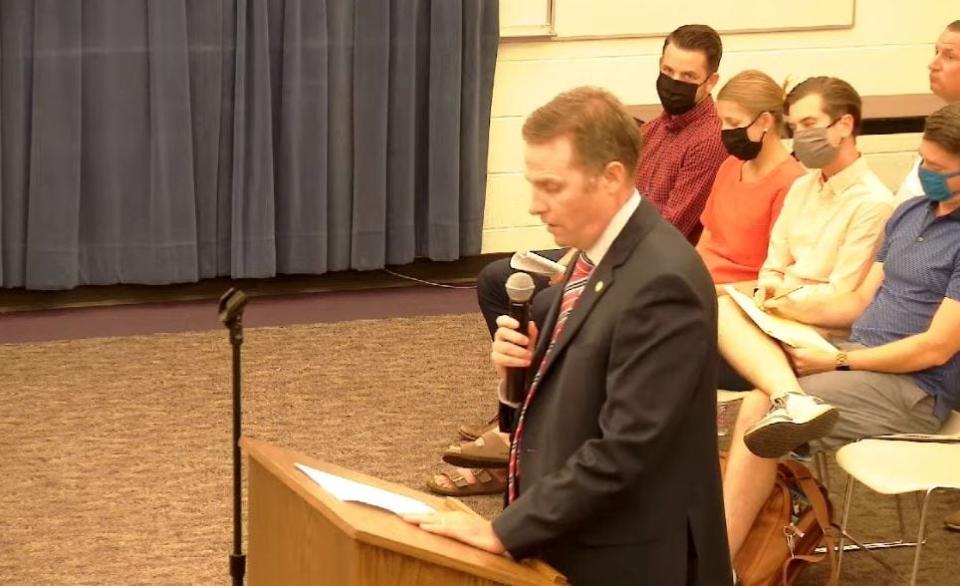
"We've been investing a lot of time and effort in creating the framework for these discussions for this time," Gebhard said.
"We need to be thoughtful. Part of our job is to balance all these different viewpoints and interests."
Nonetheless, Gebhard said, he hopes to advance a compromise bill to the governor's desk this year.
"He's accounting for revenue in his budget projections that are coming from skill games," he added in reference to the $300 million Shapiro penciled into his spending plan. "If we don't make progress from the skill games, then that revenue doesn't materialize."
One potential alternative to Yaw's Senate Bill 706 is House Bill 2042.
Introduced by state Rep. George Dunbar (R-Westmoreland), this proposed legislation would tax skill games at the same 42% state and 10% local tax rate as Video Gaming Technologies machines, better known as VGTs. It would also cap the number of Pennsylvania Skill machines at five per venue and at 50,000 total statewide.
"I'm not trying to put them out of business," Dunbar said. "I'm just saying, 'Compete. Put everyone on level footing and see what happens.'"
The status quo, according to Dunbar, is unacceptable.
He said there's a bring-your-own-beverage establishment along Route 30 that offers a pool table and 50 skill games. He doesn't believe it's OK for businesses to use these devices as their primary income source.
"It's hard to put the genie back in the bottle once the genie is out of the bottle," Dunbar said.
"Right now, these machines are out there. Right now, they're everywhere."
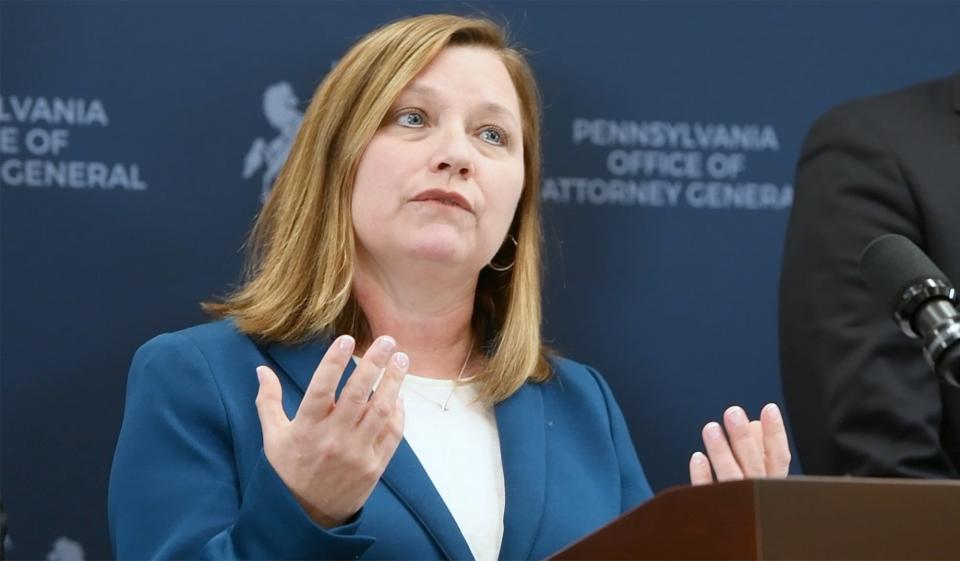
Are skill games legal in Pennsylvania?
Debate about structuring the skill games world will become moot if Attorney General Michelle Henry has her way.
Brett Hambright, press secretary for the Pennsylvania Office of Attorney General, noted that they've appealed the Commonwealth Court decision deeming Pennsylvania Skill legal. He said their position is they are "games of chance" and should be prohibited.
"These particular games are marketed to the public as what they are — slot machines," Hambright said.
"Winning is predominantly dependent on luck — which constitutes gambling — and Pennsylvania law requires regulation of gambling in the commonwealth."
'The right product for Pennsylvania'
Farry, who has been working on this issue with a bipartisan group in the House for more than a year, disagreed. The Bucks County Republican senator said he hopes to unveil his own bill on regulating Pennsylvania Skill within a few months.
He added, however, that he's concerned the skill games industry's "litigious" tendencies will complicate an already complex dynamic.
"(Senate Bill 706) is what I would call a sweet gift to a particular industry, whereas our legislation is intended to have a global look on gaming as a whole in Pennsylvania," Farry said. "Not everyone's going to be 100% on board, but they'll realize its the right product for Pennsylvania."
Bruce Siwy is a reporter for the USA TODAY Network's Pennsylvania state capital bureau. He can be reached at bsiwy@gannett.com or X at @BruceSiwy.
This article originally appeared on York Daily Record: PA skill games, Pace-O-Matic may be taxed, regulated

